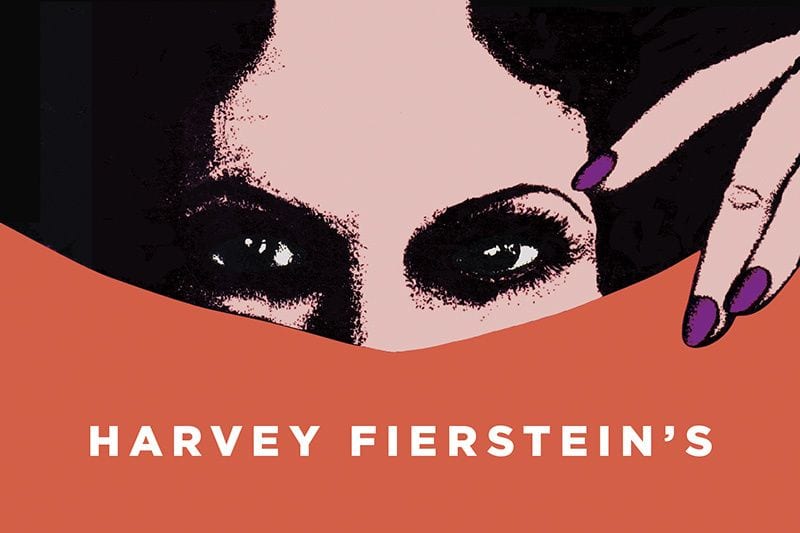
A central purpose of popular culture is to project narratives that question and subvert the status quo. Hence, Harvey Fierstein‘s Torch Song Trilogy. The plot centers on Arnold Beckoff, a gay man living in late ’70-era New York. He works as a drag queen torch singer but feels disconnected, lonely, and jaded. As the drama progresses, Fierstein unpacks major social and political issues including debunking stereotypes of gay men or complicating normative conceptions of marriage and monogamy. Torch Song Trilogy is a progressive and contemplative meditation on gay identity that was radical for the ’70s and remains dire for the contemporary moment. Throughout, readers contend with Arnold’s growth in a society determined to remain stagnant.
Torch Song Trilogy is a collection of three plays divided into distinct acts, “International Stud”, “Fugue in a Nursery”, and “Widows and Children First!” From the production notes, it’s apparent that Fierstein’s use of prop minimalism and innovative lighting rendered the dialogue as the focal point. This is evident in “Fugue in a Nursery”, where the four characters’ dialogue is circular and interwoven, thereby evoking a musical fugue’s characteristic. The 2018 edition published by Ballantine Books features a truncated version Fierstein rewrote for a 2017 revival. Each act of Torch Song Trilogy is its own contained play, premiering at different times, yet seamlessly melding.
Act one, “International Stud”, named after a gay bar in Greenwich Village, beings with Arnold’s soliloquy explaining his cynicism towards love and romance. From Arnold’s first utterances, it’s apparent that he’s Fierstein’s device to dismantle preconceived ideas on gay identity. From appearances, Arnold fulfills a narrow stereotype of gay men. He is effeminate, the audience meet him as he’s dressing in drag, and he appropriates a sense of fatalism from the songs he performs. But this is a parsimonious representation and as the dialogue unfolds, audiences are made aware of the character’s deep complexities.
Arnold is a classic romantic who idealizes a monogamous relationship aligning with heteronormativity. This is overt when he says “…in my life I’ve have slept with more men than all named and/or numbered in the Bible… but in all those beds not once has someone said “Arnold, I love you…” (16). Arnold’s tender idealism is further established in a scene where he visits a back room. As he hooks-up, it becomes obvious he’s unfamiliar, or probably just doesn’t care about, what typifies anonymous sex. With Arnold’s multiplicity, Fierstein is clearly subverting audiences expectations of gay men.
Since its original publication in 1978, Torch Song Trilogy had an unavoidable influence on popular culture. Without the popularity of this drama, and arguably Fierstein’s work in general, television shows Queer as Folk, Will and Grace, Modern Family, and RuPaul’s Drag Race, would lack a fundamental foundation. For example, the relationship between Queer as Folk characters Brian Kinney and Justin Taylor is reflective of Arnold and Alan’s anguished but impassioned connection. Similarly, the adoption trope in Modern Family emulates “Widows and Children First!” But Fierstein did more than warm-up popular culture to the idea that queer culture has a place among the zeitgeist. His representation of human complexity created a far-reaching gay dominion. He demonstrated gay culture’s charisma with approachable and empathetic material in a time when homophobia and fear prevailed.
Throughout Torch Song Trilogy, readers will find the unavoidable need to speak with the characters including telling Arnold, no, don’t do that! or what are you thinking? This is a direct result of Fierstein’s ability to create authenticate characters imbued with relatability. The most engaging and engrossing scene in the entire drama is when Arnold confronts his mother. Ma is masterfully written to illustrate how the “tolerance” mindset perpetuates homophobia. Ma loves her son but readers are forced to question her truthfulness, especially after she utters “You call this a life? This is sickness! But this is what you’ve chosen for yourself” (161). Ma is physically present in her son’s life, but her homophobia prevents her from truly loving and accepting Arnold. While wanting to ask Ma “Why can’t you just accept your son?”, Fierstein forces readers to question their own latent prejudices.
Whereas the drama clearly opens channels for dialogue, it also perpetuates bi-erasure. In the midst of hitting on Arnold, Ed quickly interjects “I date women too” (19) foreshadowing the shame he endures. Later he demonstrates his penchant for gay dalliances while self-identifying as heterosexual. Ed is awash in hapless confusion: he marries Laurel but projects jealousy over Arnold’s relationships that culminates in cruising Alan. Despite saying he’s happily married to a woman and identifying as bisexual, he is woeful and incomplete. Arnold even callously quips, “when the only people who know you’re gay are the ones you’re gaying with, that’s called in the closet”. Here, the dialogue exhibits a myopic understanding of sexual fluidity. Rather than truly accepting his sexuality, Arnold undermines a crucial element of Ed’s identity. Arguably, this is where the 40-year period between publications marred the text. Unfortunately, the 2017 version also maintains the erasure.
Overall, though, Torch Song Trilogy promotes acceptance and understanding as a primary method to combating fear and prejudice. As long as homophobia is prevalent, hate crimes commonplace, and sexualities beyond the heteronormative abhorred, there will be a need for narratives as delivered by Fierstein. As such, Torch Song Trilogy concretized its position in the popular culture canon.
- Torch Song Trilogy Opening Monologue - YouTube
- Harvey Fierstein | The Official Masterworks Broadway Site
- Torch song trilogy soliloquy - YouTube
- Torch Song Broadway | Official Site
- Harvey Fierstein's 'Torch Song Trilogy' Will Return Off Broadway ...
- Torch Song Trilogy by Harvey Fierstein | PenguinRandomHouse.com

